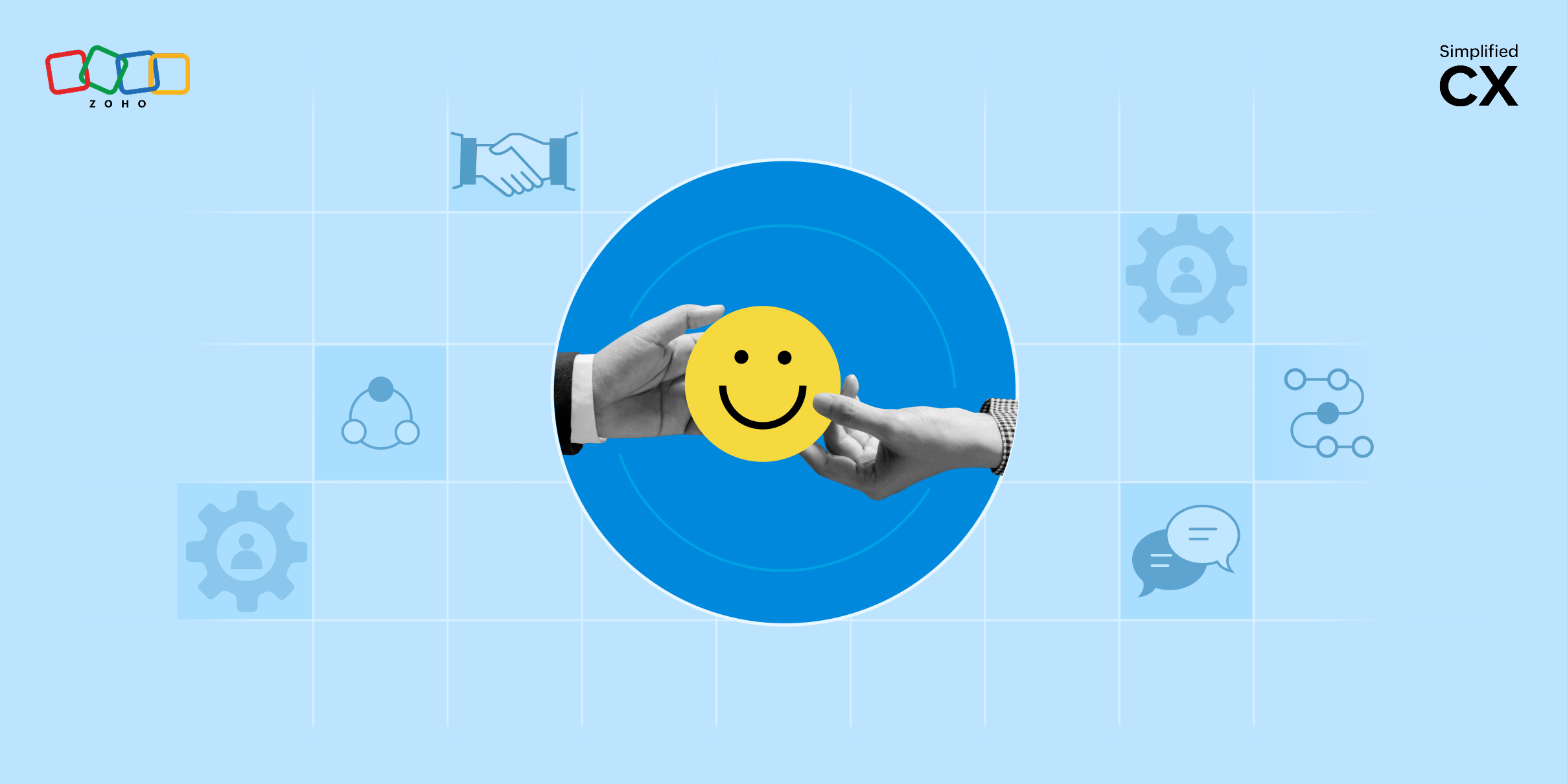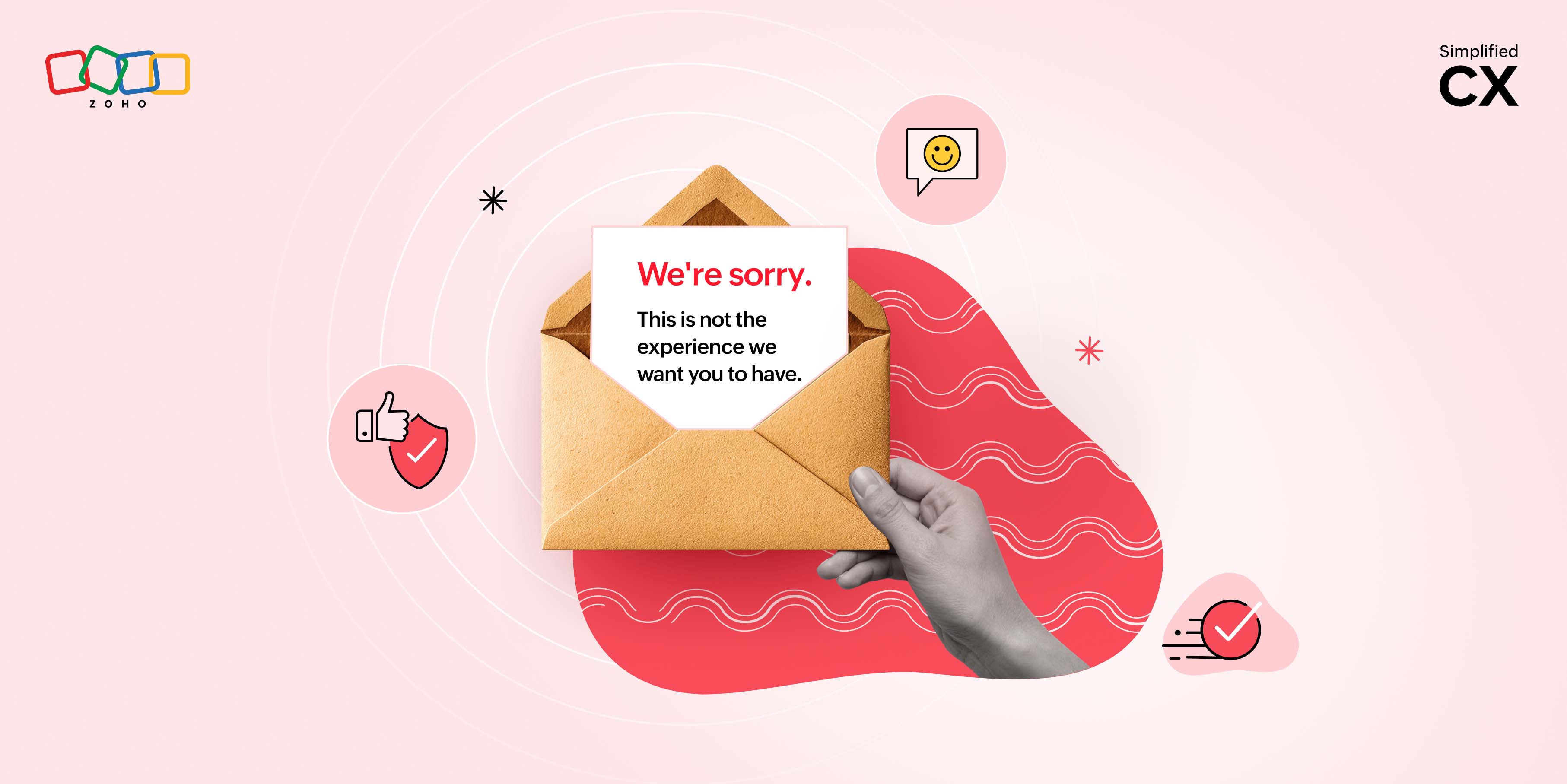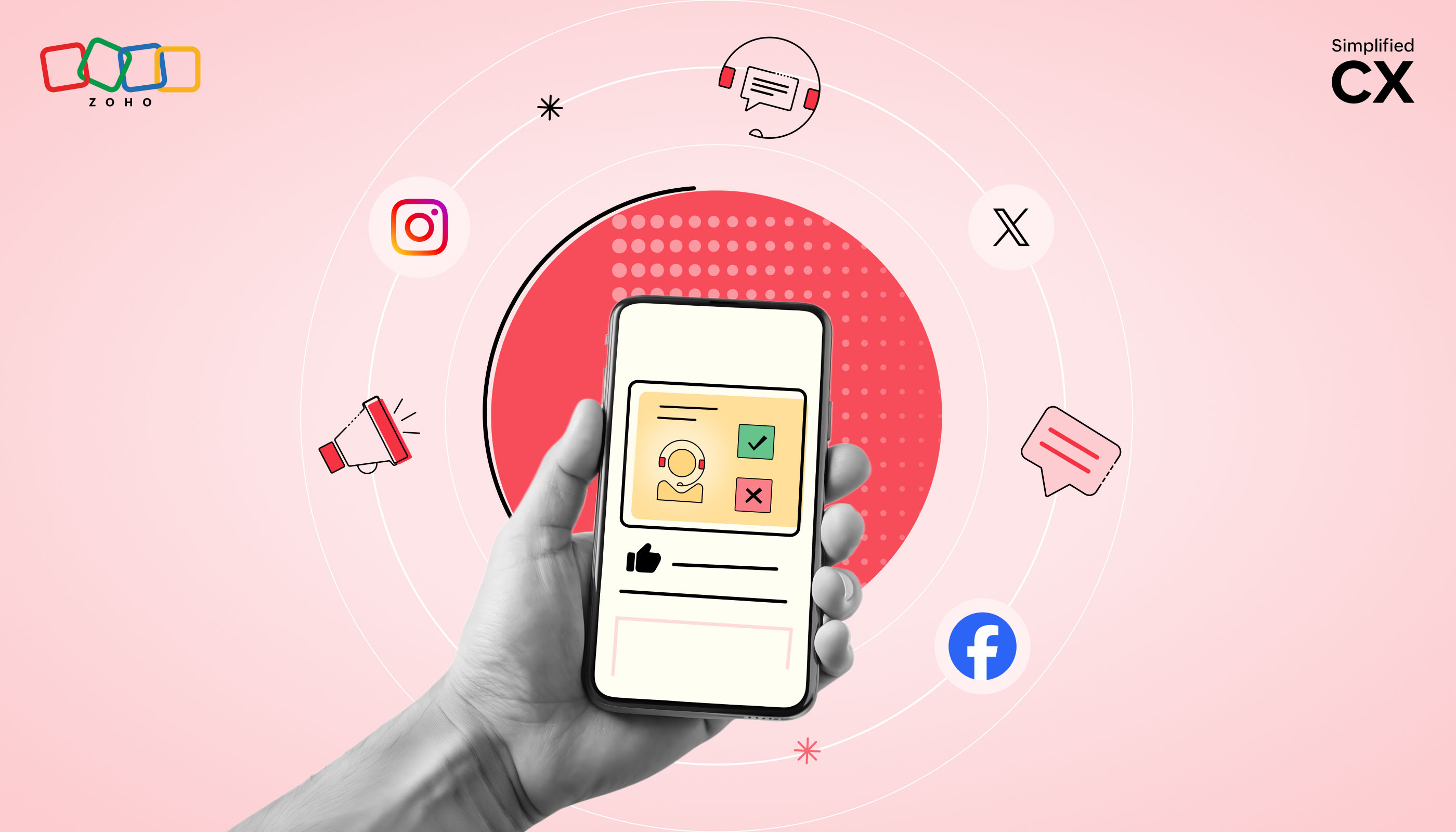Do (almost) everything, be everywhere, all at once - Part 2
- Last Updated : October 24, 2023
- 246 Views
- 6 Min Read

Welcome to Part 2 of this series on achieving the three-pronged goal of omnipresence, omniscience, and omnipotence in the customer support function. In Part 1, we explored how customer support teams can achieve the goal of omnipresence through an effective omnichannel support strategy. In this part, we'll look at how to achieve omniscience—the quality of knowing everything.
Of course, when we say "everything," we don't mean literally everything under the sun. We just mean everything there is to know about the product or the service you sell. While it's important that a customer support team is responsive, it's more important that the responses they send have value. And that's why your support agents need to be highly knowledgeable about your offerings.
How can you get there as a team? Let's explore.
Prepare detailed study material for internal consumption
No matter what your offering is, your agents must know A to Z about it. The easiest way for them to acquire this knowledge is through documents created by your core product team or technical writing team. It's essential that these documents are as detailed as possible and don't provide superficial information only. You need to address the whats, hows, whys, whens, and wheres in these documents, which should also shed light on both the capabilities and limitations of your offering. This way, your agents will know clearly what can and can't be done.
Make sure that the content is clear and leaves no room for misinterpretation on the part of your agents. Also, add external links wherever possible and necessary so that your agents have more context and references. This could mean linking to secondary information, like industry standards, technical terms and definitions, research papers, and so on.
Maintain a comprehensive, up-to-date knowledge base
A knowledge base might primarily be a customer-facing help module, but it can be of use for support agents, too—especially those newly recruited into the team. By going through help articles and FAQs first, new agents can get an overview of your offerings. This activity has two benefits: one, it helps your agents get the basics right, and two, it gives them confidence right at the beginning.
A good helpdesk software app comes with version history capabilities, which can help keep track of what's changed in the content. Using this capability, agents can get visibility into not just how things are but also how they used to be. Having a multilingual knowledge base is also a huge plus, because it can help you provide consistent and uniform information, and thereby consistent and uniform agent training across multiple languages. With a knowledge base in place, you can also ensure that everything that there is to know about your offering isn't restricted to specific individuals, and things can go on as usual even if someone quits or takes off for a day or two.
Enable agents to be consumers
No matter how much theoretical knowledge one soaks up, it won't be the same as working with the offering first-hand. It's only when a team member uses a product/service directly that they understand it much more clearly. In a team that I was previously part of, we had a tradition wherein any new member gets two to three weeks' time to explore the product on their own, after which they had to provide a demo to the rest of the team. Truth be told, almost all of us became well-acquainted with the offering, thanks to this exercise and the grilling that used to happen during the demo. In fact, the very fear of being grilled by peers made us put in more effort to learn the product in and out.
Of course, it's not possible for all organizations or teams to follow such an exercise. Maybe two to three weeks' time is a luxury in your line of business, but try to come up with a variation of this activity, or any other technique that enables your agents to experience and explore your offering on their own. Demo accounts and sandbox setups are a good way to make this happen. In one way, this activity encourages your agents to put themselves in your customers' shoes and come up with more questions about your offering. The bonus here is that sometimes your agents themselves will be able to find hitherto unidentified issues and help improve your offering.
Ensure closer collaboration with other functions
Customer support is unique in that it's the only function that definitely gets to interact with members from all other functions. This is because not all customers face the same problem; some might face an issue with delivery, which is handled by logistics/shipping, whereas some might have a refund-related issue, which is handled by finance, and so on. But no matter the issue or the function directly related to it, it's the customer support team that's responsible for answering customer questions.
Therefore, you should encourage support agents to interact with members from other business functions frequently and not just when an issue related to that function arises. Encourage agents to learn about the processes and systems in place in those functions and find out how they might impact the customer experience and journey at different stages. This will help them identify patterns in customer issues and come up with efficient ways to resolve them.
Conduct periodic training sessions
While most of the previous pointers relate more to self-learning on agents' parts, it's also important that you conduct focused training sessions periodically. New versions of your offering, new capabilities added, new offerings, new service plans—these are all a few instances when focused training is essential for agents. Without it, your agents stand the risk of appearing clueless or presenting half-baked information while talking to customers. Again, make sure to document all the knowledge there is with regards to any change that's introduced. And don't restrict training sessions just to instances like those mentioned above. Conducting ad hoc training sessions, particularly for complex issues, is a good practice as well.
Most importantly, honing knowledge should not be restricted to just technical areas or processes. Knowledge of good communication and language is equally important, making it essential that you also conduct communication workshops for agents every now and then.
That brings to my mind an anecdote a colleague shared with me a few years ago: In one of her previous jobs, there was an incident wherein an agent misunderstood the idiom "pushing up daisies" and suggested to a bereaving customer that they'll be able to put them in touch with a florist. Needless to say, the poor old customer was livid upon hearing it and escalated the interaction to the agent's manager. The only way to reduce such unpleasant experiences in customer support is by training agents on the nuances of language. If your support operations are outsourced to countries where English is not the first language, this activity becomes all the more crucial.
Use gamification techniques to encourage agents to be solution-finders
Healthy competition within a team is always a good thing, and you can make it happen in customer support through gamification. You can come up with a points system in which different tasks come with a different number of points. Someone found a shortcut that saves time? 50 points. A solution to a long-pending issue? 100! Helped team members by sharing knowledge? 75.
Well, the playground is all yours, and you can include any task/achievement that warrants appreciation and felicitation. While gamification can include a wide range of areas, including resolution time, number of requests closed, and such, also make sure to include parameters pertaining to sharing and creating new knowledge. You could provide virtual trophies, badges, and the like, and even honor particularly valuable contributions by giving gift coupons or cash prizes from time to time.
Ultimately, gamification might pit individuals against one another, but as the manager, it's your responsibility to remind them that you're all working towards a collective goal, and that it's important to maintain a spirit of camaraderie throughout.
It's not realistic to expect your agents to have at their fingertips the answers to every single question that customers might ask. They may face the occasional curveball from a difficult customer or a genuinely complex issue. New, unforeseen issues come up all the time and must be dealt with on a case-to-case basis. In short, it's not possible for someone to know the answer to every question. Nevertheless, you and your team can make giant strides towards the goal of omniscience through the approaches mentioned in this article.
See you soon with the third and final part of this series, where we'll explore ways to achieve the third goal: omnipotence.


